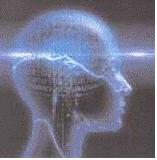 |
NIPS 2005 Workshop Organizers: Danny Silver, Goekhan Bakir, Kristin Bennett, Rich Caruana, Massimiliano Pontil, Stuart Russell, Prasad Tadepalli |

|
Home
Overview
Important Dates
|
Overview
Inductive
transfer or transfer learning refers to the problem of retaining and
applying the knowledge learned in one or more tasks At NIPS95 two of the co-chairs lead a successful two-day workshop on "Learning to Learn" that focused on the need for lifelong machine learning methods that retain and reuse learned knowledge. (The co-organizers of that workshop were Rich Caruana, Danny Silver, Jon Baxter, Tom Mitchell, Lorien Pratt, and Sebastian Thrun.) The fundamental motivation for this meeting was the acceptance that machine learning systems would benefit from manipulating knowledge learned from related and/or prior experience and that this would enable them to move beyond task-specific tabula rasa systems. The workshop resulted in a series of articles published in a special issue of Connection Science [CS 1996], Machine Learning [vol. 28, 1997] and a book entitled "Learning to Learn" [Pratt and Thrun 1998]. Research in inductive transfer has continued since 1995 under a variety of names: learning to learn, life-long learning, knowledge transfer, transfer learning, multitask learning, knowledge consolidation, context-sensitive learning, knowledge-based inductive bias, meta-learning, and incremental/cumulative learning. The recent burst of activity in this area is illustrated by the research in multi-task learning within the kernel and Bayesian contexts that has established new frameworks for capturing task relatedness to improve learning [Ando and Zhang 04, Bakker and Heskes 03, Jebara 04, Evgeniou, and Pontil 04, Evgeniou, Micchelli and Pontil 05, Chapelle and Harchaoui 05]. This NIPS 2005 workshop will examine the progress that has been made in ten years, the questions and challenges that remain, and the opportunities for new applications of inductive transfer systems.
In
particular, the workshop organizers have identified three major
goals: (1) To summarize the work thus far in the area of inductive
transfer so as to develop a taxonomy of research indicating open
questions, (2) To share new theories, approaches and algorithms
regarding the accumulation and use of learned knowledge for the
purposes of more effective and efficient learning, (3) To discuss a
more formal inductive transfer community (or special interest group)
that might begin by offering a website, benchmarking data and
methods, shared software, and links to various research programs and
other web resources. As an example, please see
http://birdcage.acadiau.ca:8080/ml3/. |
|||